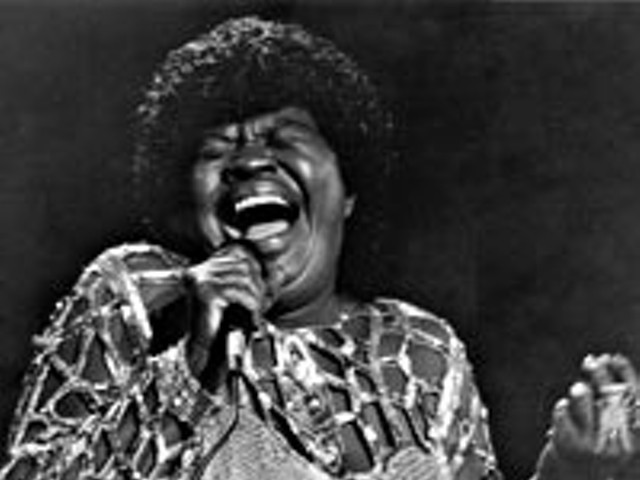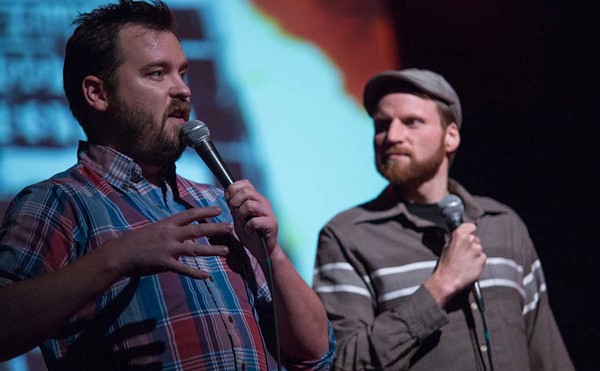Meanwhile, out on the streets two moronic crooks literally rip off (or, more accurately, rip out) an ATM. As they drag it through a silly and practically laughless subplot based on a truly stupid true crime, the philosophy, mathematics and theology of "big, fat, juicy ass" holds the floor at the barbershop.
But still there’s something remarkable going on in Barbershop. Though writer Mark Brown’s (Two Can Play That Game) characters verge on the stereotypical, he mostly manages to twist his clichés or intelligently parody them and play them off each other. Know-it-all college boy Jimmy James (Sean Patrick Thomas) finds his intelligence challenged by Ricky (Michael Ealy), a pretty boy ex-con with two felony strikes. Then Jimmy’s criticism of what he sees as Isaac Rosenberg’s (Troy Garity) ripped-off lifestyle (referring to Jewish Isaac’s "pimped-out" ride with a "sista with a fat ass" on the passenger side) blows up in his face — and calls the concept of blackness into question.
Brown occasionally uses his characters as mouthpieces and the screen as his soapbox for proclaiming the ills — and the possible cures — of black America, as if he’s smoked and inhaled more than one Spike Lee Joint. But he obviously didn’t pass it to director Tim Story: Barbershop has nothing like Spike’s bodacious visual flair.
The voices of the Staple Singers’ ’70s R&B hit promise "I’ll Take You There" as the credits roll and Calvin closes shop in a Hollywood ending. And Barbershop opens the door into an interesting, but ultimately flawed comic portrayal of one of black America’s cultural institutions.




